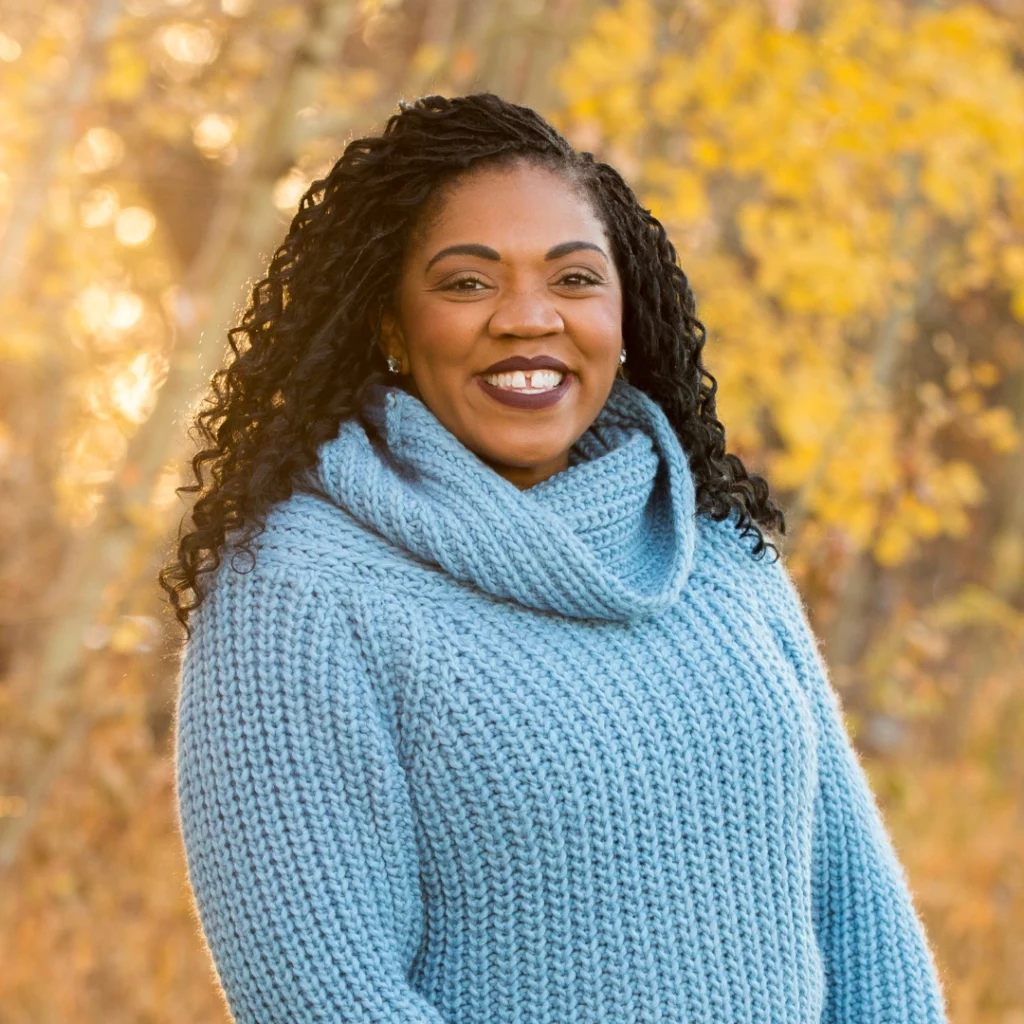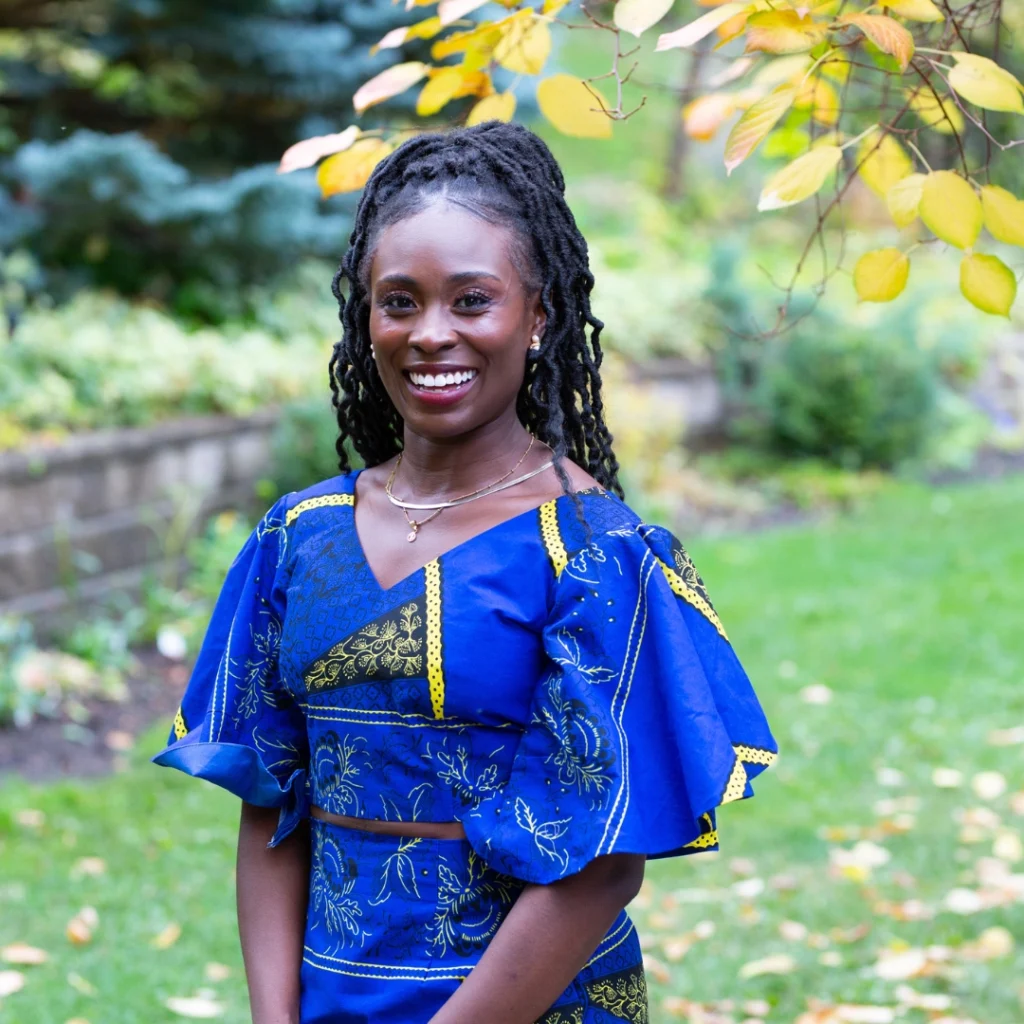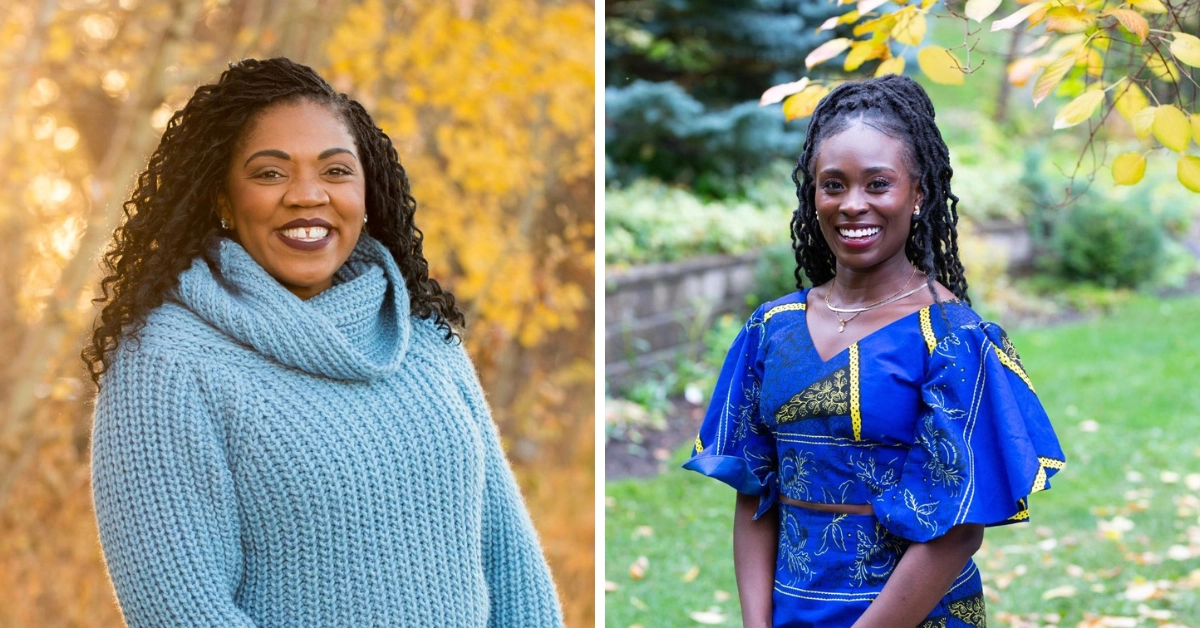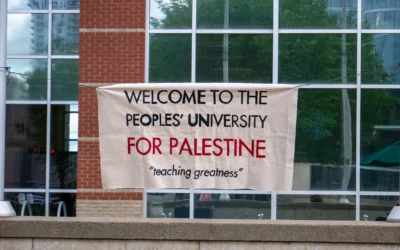An honest conversation about Black History Month, intentional student connection, and taking up space
On MacEwan’s second floor of Building Six lives the Office of Human Rights, Equity, and Inclusion (OHREI), which works with the rest of the university to build a campus that is free from discrimination. I sat down with Rondah Worrell-Maik, an education and engagement practitioner, and Evelyn Asiedu, director of program delivery and education, to have an honest discussion about the office’s initiatives, their thoughts on Black History Month, and their hopes for student engagement in the future.
According to its website, the office answers students’ questions about human rights policies and supports students’ ideas for initiatives that promote diversity. This on-campus service is often overlooked. Many students don’t know exactly what the office is, where it is, or what the staff do for MacEwan students.
De-mystifying the role: Introducing the Office of Human Rights, Equity, and Inclusivity
“The purpose of the office is to create a sense of belonging and safety for individuals on the MacEwan campus,” says Worrell-Maik. “A primary way that we support students on the education and engagement side is by going into classes and providing education opportunities.”
If a student faces discrimination or anything that falls within the protective ground of human rights, they can approach the office to seek support and guidance on their next steps. The office aims to take a restorative approach so students can be assured that the harm that was done to them will be repaired. If students are interested in pursuing a more formal process, the office can help formalize the complaint by helping students fill out a human rights complaint form that goes directly to the Office of the General Counsel, MacEwan’s legal affairs department.

If a student faces discrimination or anything that falls within the protective ground of human rights, they can approach the office to seek support and guidance on their next steps. The office aims to take a restorative approach so students can be assured that the harm that was done to them will be repaired. If students are interested in pursuing a more formal process, the office can help formalize the complaint by helping students fill out a human rights complaint form that goes directly to the Office of the General Counsel, MacEwan’s legal affairs department.
The Office of Human Rights, Equity, and Inclusion seeks to bridge the gap between students and the services it offers. One of the ways it does this is by trying to understand who’s on campus and how to operate in the campus space.
Evelyn Asiedu, who is a scientist by trade, was hired to help Macewan collect data on the sociodemographics on campus. “Essentially, we are just trying to understand who makes up our community,” she says. “It’s nice to be able to use info about the people here and help improve their experiences — using it as a foundation to make change.”
Asiedu and her team intend to use this data to ensure that the initiatives implemented by OHREI make sense for the staff and students who occupy MacEwan. The data is assessed, and the strategies and initiatives are then altered to better suit the human beings who call this university home.
“If we know how people see and categorize themselves, and we are trying to make an environment that works for them, then having that data [of how people see themselves] can help to do that,” says Aisedu.
She expresses the importance of collecting and disseminating that data in an action-oriented manner. especially keeping in mind the history of colonization, extractive practices on racialized individuals, and gatekeeping collected data — just google it.
In 2019, a diversity survey was done within the MacEwan student body. The purpose of the survey was to understand diversity and belonging and what students thought about these concepts. The results showed that 80 per cent of students felt like MacEwan was quite diverse within the student body, but less diverse when it came to faculty and staff.
“Although we did the survey, a lot of students didn’t know who we are and don’t know what we do,” says Worrell-Maik.
The 2019 survey indicates what students would want from the office and articulates what would create a sense of belonging for students on campus. The demographic data Asiedu and her team collect informs the office how many different groups of identities they need to create a sense of belonging for.
Reflections and confessions
As a Black woman, I tire of advocating for my existence and the complexion of my skin. Furthermore, as a Black journalist, I carry the weight (and honour) of amplifying the voices in my community. For many Black Canadians, February is a month of jubilation and, contrastingly, exhaustion. We’re overworked organizing events for our own celebrations and performances that take place in the shortest and coldest month of the year.
“In conversations that I’ve had with Black Student Alliance members, and even when I think of myself as a person in a Black body, I don’t feel like I belong,” Worrell-Maik explains. “It’s not that people are actively trying to exclude me, but it’s about trying to see yourself and your story in the spaces that you inhabit.”
Saying “no” and exercising boundaries is a practice that Worrell-Maik relishes during Black History Month as a means of taking power back and prioritizing rest — a practice I also need to adopt. She also stresses how crucial it is for her to celebrate Black Joy over struggle.
“It’s important to look at history and struggle because that’s how we grow and move forward but you can learn and grow all year long,” says Worrell-Maik, “Let’s use February to celebrate, to highlight, to be present and able to embrace things I don’t usually appreciate like being alive and happy and functional.”
Celebrating Black Joy is a priority for Asiedu as well. “To focus on challenges all the time — it’s exhausting… It’s important, but it gets boring, and people tune out, and it’s kind of the same old, same old,” she says. “We know that Black people are so dynamic, interesting, and creative, so finding ways to celebrate that — not just in Black History Month but all year round — is essential.”
Asiedu is glad that Black History Month exists. She uses the month as a time of reflection and ponders on how it impacts the community.
“Across Canada and the world, there is a lot of tension about identity, and in a lot of cases, there’s even more backlash these days when it comes to celebrating differences.”

Much like me, Asiedu feels the weight of trying to get folks to care about Black History Month.
“You can lead a horse to water, but I don’t think a lot of people know that there was a history of slavery in Canada and that there are Black migrants that settled in Alberta and have been here for many generations, or that there are many inventions that we use on the daily that are brought to us by Black people and Black minds.”
There is a healthy balance of helping people understand our history without shoving it down their throats that many Black people have had to master. We must caution not to make folks feel bad as people may already feel resistant to the very idea of celebrating differences and defaulting to the colourblind approach to race.
“It’s frustrating to have to consider other people’s feelings in education as a Black person, but also understanding that without allowing that openness and a space for people to be curious, make mistakes, and say the ‘wrong’ things, there will be no progress,” says Asiedu.
Celebrating Black History Month with MacEwan
Worrell-Maik and Asiedu have worked to bring various fun activities and events to MacEwan in light of Black History Month. Food, music, educational opportunities, and all things Black excellence are just a few things students can look forward to partaking in this month.
“‘Unpacking the N-Word’ is a project we’re hoping to do with an organization called Overture with the Arts — a small Ontario-based company that provides virtual educational experiences,” says Worrell-Maik. “‘Unpacking the N-Word’ was an event that happened last year and being able to throw it again would be great.”
OHREI is working with MacEwan’s Interdisciplinary Dialogue Project this year to deliver various Black History Month events.
“We want to celebrate diversity, and we want people to feel like they are being treated fairly and the barriers to access are removed.”
Rondah Worrell-Maik, education and engagement practitioner for the Office of Human Rights, Equity, and Inclusion
The overarching theme for this year is “Imagining Cities of Tomorrow” and is split into three smaller themes. The theme for OHREI is “Stories of Belonging.”
“There will be food, a DJ, and facilitated conversations with a musical component,” says Worrell-Maik. “There will be an opportunity for folks to create an art design expression that tells a story of belonging that ‘imagines cities of tomorrow.’”
Looking for collaboration and student engagement
The office is often underused by students. I think this may result from a lack of understanding that the office isn’t there just for legal purposes in cases of discrimination. The office seeks to help students in their own initiative of promoting diversity on campus. Examples of this are hosting cultural events, bringing guest speakers onto campus, and hosting networking events.
“What’s sad about the 2019 survey is that students don’t really know who we are,” says Worrell-Maik. “We want to collaborate with students, and we want to support them. So, if they can find us, we would love to be able to support any ideas that students have.”
The Champions of Diversity and Equity Project
As part of the office’s initiatives, Worrell-Maik hosts a program called “The Champions of Diversity and Equity Project.” Through education and training, the office hopes to teach students, faculty, and staff about the impact of oppression and discrimination.
“Students can come in and, over 10-ish weeks, learn different aspects of EDI [Equity, Diversity, and Inclusion] , get to know their peers better, and hopefully get to be champions for EDI at MacEwan,” she says.
To conclude
I challenge everyone to learn something new this month about how we can continue to make this campus a safe space for all who occupy it. Attend one or more of the events, read a book, look things up online, and facilitate uncomfortable yet necessary conversations with friends and families as we strive to be better for one another day by day.
Lastly, use the resources on campus that are available to you for education and support.
“We want to celebrate diversity, and we want people to feel like they are being treated fairly and the barriers to access are removed,” says Worrell-Maik.
All Black History Month celebrations and events at MacEwan can be found at macewan.ca/humanrights.





0 Comments